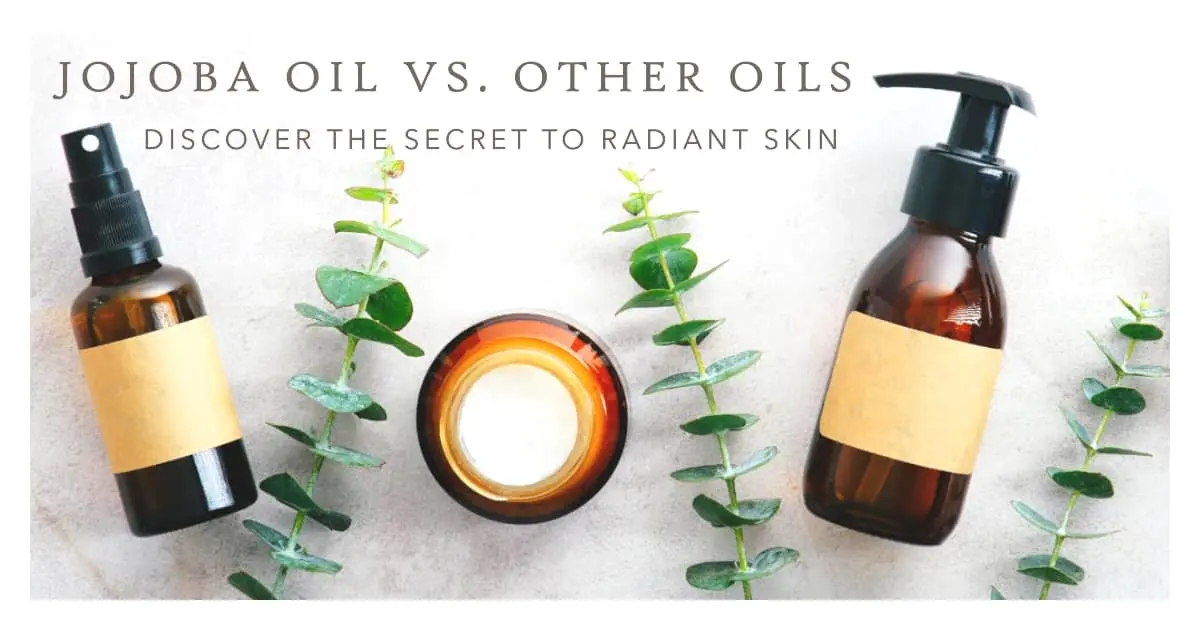Boils are painful, pus-filled bumps that can form on the skin. They are caused by an infection of a hair follicle and are most commonly found on the face, neck, armpits, and buttocks. Boils can be caused by a number of things, including:
- Poor hygiene
- Ingrown hairs
- Bacterial infections (Staph infection)
- Injuries to the skin
- Weakened immune system
- Diabetes
- Acne
- Staph infection

Boils usually go away on their own within a few weeks. However, there are a number of home remedies that can help to speed up the healing process. One such remedy is castor oil.
Castor oil is a natural remedy that has been used for centuries to treat a variety of skin conditions, including boils. Castor oil has antibacterial and anti-inflammatory properties, which can help fight the infection and reduce the inflammation associated with boils.
Castor oil is a safe and effective remedy for most people. However, if you have any concerns about using castor oil, please consult with a healthcare professional.
In this blog post, we will explore how castor oil can be used to treat boils and why it is the only remedy you’ll ever need so if you’re looking for a natural and safe way to alleviate the discomfort and speed up the healing process of your boils, read on to discover the many benefits of using castor oil for boils.
The Benefits of Castor Oil for Boils
Castor oil is a natural remedy that has been used for centuries to treat a variety of skin conditions, including boils. Castor oil has antibacterial and anti-inflammatory properties, which can help fight the infection and reduce the inflammation associated with boils.
Antibacterial Properties
Castor oil contains a compound called ricinoleic acid, which has antibacterial properties. Ricinoleic acid can help to kill the bacteria that cause boils, which can help to speed up the healing process.
Anti-inflammatory Properties
Castor oil also has anti-inflammatory properties. Inflammation is the body’s natural response to injury or infection. However, too much inflammation can slow down the healing process. Castor oil can help reduce inflammation, which can help the boil heal faster.
Draw Out Pus and Toxins
Castor oil is also a drawing agent, which means that it can help to draw out pus and toxins from boils. This can help to relieve pain and pressure, and it can also help the boil to heal faster.
Promote Healing and Prevent Scarring
Castor oil helps to promote healing by penetrating deep into the skin. This allows it to deliver its healing properties directly to the source of the infection, helping to speed up the healing process
Castor oil can also help to promote healing and prevent scarring. Castor oil can help keep the skin moist, which can help prevent the skin from drying out and cracking. This can help to prevent scarring.
How to Use Castor Oil for Boils

Castor oil is a natural remedy that can be used to treat boils. To use castor oil for boils, simply follow these steps:
- Apply a small amount of castor oil to the boil with a cotton ball.
- Cover the boil with a bandage.
- Leave the bandage on for 24 hours.
- Repeat this process for several days until the boil is gone.
Tips for Using Castor Oil
Castor oil is a natural remedy that can be used to treat boils. Here are some additional tips for using castor oil for boils:
- Quality: Make sure to use pure castor oil.
- Test for allergies: Before using castor oil for the first time, do a patch test to check for any allergies or sensitivities. Apply a small amount of castor oil to a small area of the skin and wait 24 hours to see if there is any adverse reaction.
- Warm Oil: You can warm the castor oil slightly before applying it to help it penetrate the skin better.
- Dilute if necessary: Castor oil is very thick and can be difficult to apply in its pure form. If you find it too thick or sticky, you can dilute it with carrier oil like coconut oil or olive oil.
- Cold compress: If the boil is painful, you can apply a cold compress to the area.
- Avoid getting it in your eyes: Castor oil can cause irritation and redness if it gets into your eyes. Be careful when applying it around your eyes and wash your hands thoroughly after applying it.
- Don’t ingest castor oil: While castor oil is safe to apply topically, it should not be ingested. Ingesting castor oil can cause digestive upset and potentially serious side effects.
- Monitor for side effects: Although castor oil is generally safe, it can cause some side effects in certain people. These can include skin irritation, allergic reactions, and digestive upset.
- See a Doctor: If the boil does not go away after a few days, or if it gets worse, see a doctor.
Safety Precautions
Castor oil is generally safe for most people. However, there are a few safety precautions to keep in mind:
- Do not use castor oil if you are allergic to it: If you have any allergies, it is always best to test a small amount of castor oil on your skin before using it more extensively.
- Do not use castor oil on open wounds: Castor oil can irritate open wounds and make them more difficult to heal.
- Do not use castor oil if you are pregnant or breastfeeding: There is not enough research to know if castor oil is safe for pregnant or breastfeeding women. It is best to err on the side of caution and avoid using castor oil if you are pregnant or breastfeeding.
Castor oil is safe and effective for most people. However, it is important to follow safety precautions when using castor oil. If you have any concerns about using castor oil, please consult with a healthcare professional.
Other Home Remedies for Boils
In addition to castor oil, there are a number of other home remedies that can be used to treat boils. These include:
- Warm compresses: Apply a warm compress to the boil for 10-15 minutes several times a day. This can help to draw out the pus and reduce inflammation.
- Epsom salt baths for boils: Soaking in an Epsom salt bath can help to draw out the pus and reduce inflammation. Add 2 cups of Epsom salt to a warm bath and soak for 20 minutes.
- Tea tree oil for boils: Tea tree oil has antibacterial and anti-inflammatory properties. Apply a small amount of tea tree oil to a boil with a cotton ball.
- Garlic for boils: Garlic has antibacterial and anti-inflammatory properties. Crush a clove of garlic and apply it to a boil with a bandage.
- Turmeric for Boils: Make a turmeric paste by mixing one teaspoon of turmeric powder with a few drops of water or coconut oil to form a thick paste. Apply the paste directly on the boil and cover it with a clean bandage.
- Neem Oil: Neem oil is known for its potent antibacterial properties that extend beyond skin care. It can fight off bacteria that cause boils and other infections
- Apple Cider Vinegar for Boils: Add two cups of apple cider vinegar to warm bath water and soak in the tub for 20-30 minutes.
- Honey: Honey has antibacterial and anti-inflammatory properties. Apply a thin layer of honey to the boil with a bandage.
- Onion Poultice: Onions contain natural anti-inflammatory and antimicrobial compounds. When applied as a poultice directly to the boil, onions can help reduce inflammation, draw out impurities, and combat the infection
- Witch Hazel: Witch hazel’s astringent properties cleanse the affected area by removing impurities and bacteria, reducing the risk of infection.
- Baking Soda: Baking soda’s anti-bacterial and anti-inflammatory properties are effective in healing boils.
When to See a Doctor

If you have a boil that is:
- Very large
- Very painful
- Located on your face
- Not improving after a week
- Associated with a fever or other symptoms
You should see a doctor. A doctor may prescribe antibiotics or drain the boil surgically.
Takeaway
Castor oil is a powerful and effective remedy for treating boils. Its anti-inflammatory and antibacterial properties make it an excellent choice for reducing swelling, promoting healing, and preventing infection. When used correctly, castor oil can help alleviate the pain and discomfort associated with boils and speed up the healing process.
In addition to its medicinal properties, castor oil is also affordable, easy to find, and simple to use. Whether you choose to apply it as a compress, poultice, or topical treatment, castor oil can help to bring relief and healing to your skin.
Overall, castor oil is the only remedy you’ll ever need to treat boils. So if you’re struggling with this painful and uncomfortable skin condition, give castor oil a try and see for yourself how effective it can be.
However, as with any natural remedy, it is important to use castor oil safely and correctly to avoid any potential side effects. So be sure to follow the tips and guidelines outlined in this article, and consult with your healthcare provider if you have any concerns or questions.
3 Sources:
Noble Home Remedies relies on peer-reviewed studies, academic research institutions, and medical associations for accuracy and reliability while avoiding tertiary references. Our editorial policy provides more information about how we ensure our content is accurate and up-to-date.
- Ricin: An Ancient Story for a Timeless Plant Toxin by National Library of Medicine
- Castor oil by Health Line
- Home Remedies Boils by McDowells






